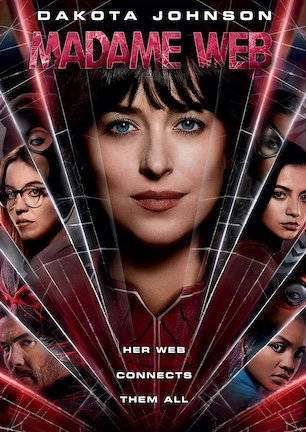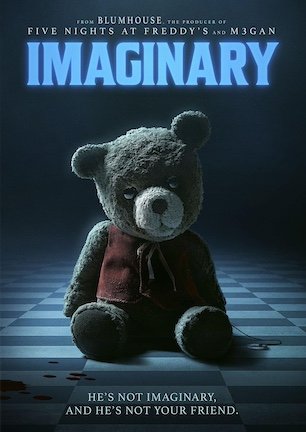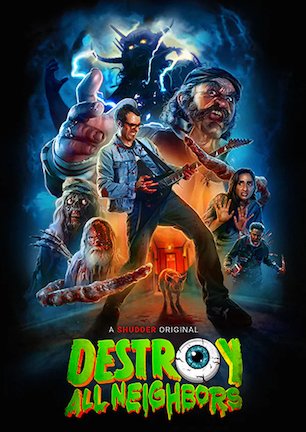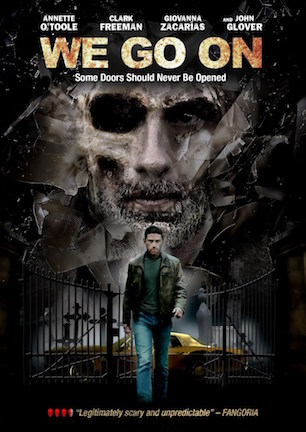Studio: Magnet Releasing
Director: Mark Hartley
Writer: Mark Hartley
Producer: Michael Lynch, Craig Griffin
Stars: Quentin Tarantino, Jamie Lee Curtis, Stacy Keach, Dennis Hopper, John Jarratt, George Lazenby, Steve Railsback
Review Score:
Summary:
Filmmakers, actors, and journalists discuss the history of Australian genre cinema from its roots in sex comedy through its development into horror thrillers and stunt-oriented action.
Review:
During an impressionable youth spent subsisting on a steady diet of Count Chocula, orange soda, and genre movies, films like “Razorback,” “Patrick” (review here), and of course “Mad Max” were definitely part of that wide-eyed viewing experience. Before “Not Quite Hollywood,” I perhaps dumbly never quite noticed that such films were part of a related sub-genre of cinema belonging to a maverick period in Australian moviemaking. A trifle red-faced at the realization that my B-movie knowledge unknowingly held this canyon-sized hole, leave it to Mark Hartley’s immensely enjoyable love letter to “Ozploitation” to pick me back up for a crash course in everything worth appreciating about that era.
“Not Quite Hollywood: The Wild, Untold Story of Ozploitation!” moves at a whip speed through two decades of down under cinema starting with an early 1970’s cultural shift where a relaxing system of censorship gave way to a rise in raunchy sex romp comedies. Boundary-pushing ideals moved from a focus on sex to a spotlight on violence when films such as “Roadgames,” “Next of Kin,” and “Dark Age” became piping hot commodities. Before the death of the drive-in and the new age of home video finished etching the movement’s tombstone, Aussie cinema saw a third wave of distinction with car-centric thrillers, machismo madmen, and stunt-oriented action.
Featured prominently in the documentary as a famous fan with plenty of enthusiastic commentary is Quentin Tarantino, who affectionately summarizes all of the above as “Aussieploitation.” Writer/director Mark Hartley offers the snappier designation of “Ozploitation” and now genre aficionados have a term to describe a subsection of exploitation-style cinema that many never consciously realized constituted a subsection. From Tarantino’s dedication of “Kill Bill” towards the work of Brian Trenchard-Smith to Leigh Whannell’s revelation regarding Mad Max’s influence on Saw’s hacksaw conceit, contemporary filmgoers may not even be aware of the impact that 70’s/80’s Australian genre cinema continues to have.
Hartley takes full advantage of his music video background and access to dozens of participants in putting together a pace that is at times too fast to digest the rapid delivery, although it is certainly never dull. Important behind-the-scenes names including George Miller, Richard Franklin, and John Seale are on hand for technical insight while more mainstream names such as Dennis Hopper and Jamie Lee Curtis offer star power draw among the many actors interviewed.
Controversies like a furor over casting American stars to increase overseas commercial prospects at the expense of Australian actors losing jobs receive almost cursory mentions, though it is from the film’s desire to cover broad swaths of topics as opposed to intentional rug sweeping. “Not Quite Hollywood” is not necessarily deep or academic, but neither is the material covered. It takes itself as seriously as the movies it profiles did at the time, which is to say, only as much as is necessary.
A welcome tongue-in-cheek slickness pulses throughout in the form of terrific anecdotes and sly digs like a veiled comparison of one film critic to a mummy and an inference that an early Australian censor was so strictly repressive because he had only one arm and thus could not masturbate properly to scenes of excessive nudity and fornication. With the benefit of time having mended bruised egos, old grudges are now colored with some measure of fondness. Referencing on set troubles with actor Dennis Hopper, one interviewee recalls, “Dennis was a full on method actor. That was convenient for him because (his character) Mad Dog drank a lot of rum, which Dennis had researched before he arrived.” It’s a dry delivery that only hints at the headaches with an overriding air of c’est la vie.
Filmmaker John Lamond somewhat appropriately gives his interview in a strip club while a topless dancer gyrates in a thong on the stage behind him. Western viewers will additionally increase their vocabulary of Queensland-specific terms with new words ending in “er” including chunder (vomit), ocker (stereotypical Aussie), and poofter (derogatory term for a homosexual – don’t use that one). The whole feature carries a tone of reverent and irreverent fun in equal doses when appropriate, just like Ozploitation itself.
“Not Quite Hollywood” is additionally a thoughtful story of how Australia’s underground cinema culture wove its way through peaks and valleys of sex comedy, horror, and rip-roaring action before becoming carried away in increasingly outrageous ideas, misappropriated budgets, and careless safety standards, or lack thereof. Yet best of all, it is a documentary that inspires interest in a subject you did not even realize you fell in love with until the movie proves it to you.
Whether the subject matter is a true crime exposé, celebrity portrait, or cultural scrapbook, the best documentaries are not only the ones that teach, but also the ones that inspire a passion through their presentation. After viewing “Not Quite Hollywood,” genre film fans walk away with newfound understanding of and appreciation for an overlooked era of movie culture, but perhaps more importantly, a slew of suggestions sure to influence Netflix queues for many, many weeks to come.
Review Score: 90







If you want to see impossible amounts of blood explode crimson colors like the world’s worst version of a gender reveal, well, “Abigail” at least has that.